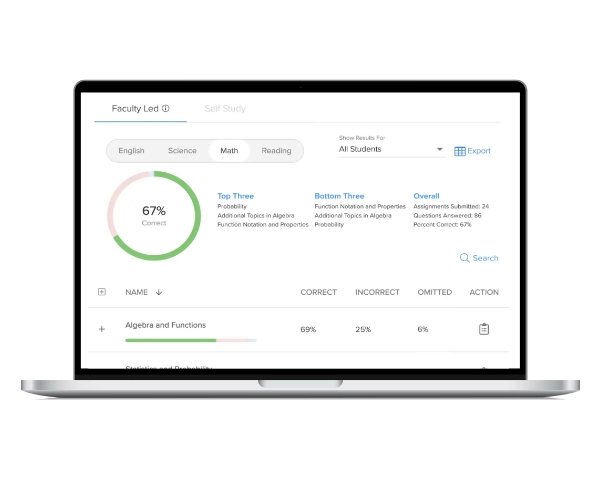When it comes to an AP classroom, there are a number of unspoken expectations from teachers preparing to teach an Advanced Placement® course for the first time.
These expectations cover nearly every aspect of the upcoming learning experience. Assumptions are made about student preparedness, support from administration, parental involvement, classroom engagement, and even student behavior.
But there can be quite the gap between expectations and reality. What you expect your AP teaching experience will be and the upcoming reality may be two very different things.
Teachers are best prepared when their expectations are well-informed. With that in mind, here are four common expectations held by new AP educators and the accompanying reality.
Expectation #1: Students know a lot about the advantages and opportunities of the AP program.
Reality: This is not always the case. Students may have been placed in a course track years ago and were never informed about why AP courses are beneficial. They also may be unaware of what to expect from the course and the exam at the end of the year.
What this means for the AP teacher: Students, as well as parents, may need to be informed and “recruited” to get excited about the goals of the course and the opportunity to earn college credit.
Expectation #2: Students were in Pre-AP classes and so they should have developed the analytical and language skills they need to be ready to engage with the AP curriculum.
Reality: There are no set Pre-AP standards or curriculum, and not all teachers are required or have the opportunity to attend Pre-AP training. Therefore, some teachers may not have known what to emphasize in those earlier grades. Furthermore, students may not have been developmentally ready to acquire certain skills or levels of language. There will be skill gaps, and students will arrive with varying levels of readiness.
What this means for the AP teacher: AP teachers have to find out where students are so they can build on their strengths, while providing opportunities for students to catch up.
Expectation #3: Students will be eager for discussion and debate and will enjoy engaging with real world issues.
Reality: Sometimes. The way a dynamic develops in a class section is unpredictable, and classes can have a “personality” just like individual students do. Some classes jump readily into verbal exchanges, while others may take a while to get there, or may never seem to enjoy that aspect of the course. And within any group, some students will love thinking out loud and debating, while for others, they dread it more than changing in the locker room. Additionally, some topics and texts may just be too politically or emotionally polarizing. Students may not be able to focus on the skills — on learning how to conduct academic discourse and analytical thinking, reading, and writing.
What this means for the AP teacher: Be sensitive to how kids feel about verbal participation and look for ways to build an environment of trust and respect. Use texts and tasks that engage rather than polarize students, and provide explicit instruction, modeling, and feedback to help them learn how to engage in academic discourse with integrity and tact.
Expectation #4: AP classes are easier to manage in terms of classroom behavior.
Reality: The challenges are different, but these students still need a teacher to lead them. Their “acting out” is more likely to look like withdrawal (lack of preparation, missed deadlines, cheating) than flagrant misbehavior.
What this means for the AP teacher: Provide clear expectations, accountability, feedback, and support to help students stay motivated.
AP instruction comes with unique challenges — heavy grading, teaching new skills like analytical writing, and the pressure of the AP exams, just to name a few. But when you meet these challenges, when you see your students find new levels of success, the reward is well worth it.
Your confidence and competency will grow with each new week, semester, and school year. As a new AP teacher, the likelihood is you will prepare your students better in the future than you do the first year. Talk to your administration about setting realistic expectations for you and, most importantly, for your students. Keep some early and later examples of students’ work, and show your students and their parents how much students have learned in your class. Remind your students what to be proud of and you will be reminding yourself as well of what you have accomplished.
At UWorld, we are committed to helping educators do what they do best: make a difference in the lives of their students by helping each student reach their full potential.
For districts, schools, and educators looking to enhance AP classes and boost student scores, UWorld offers an innovative AP resource that helps students master the concepts needed for AP exam success.
With perfectly modeled College Board level questions, concise answer explanations, and easy-to-access performance monitoring, our supplemental online learning tool will help you take your AP education to the next level. Discover how we can help your program today.




